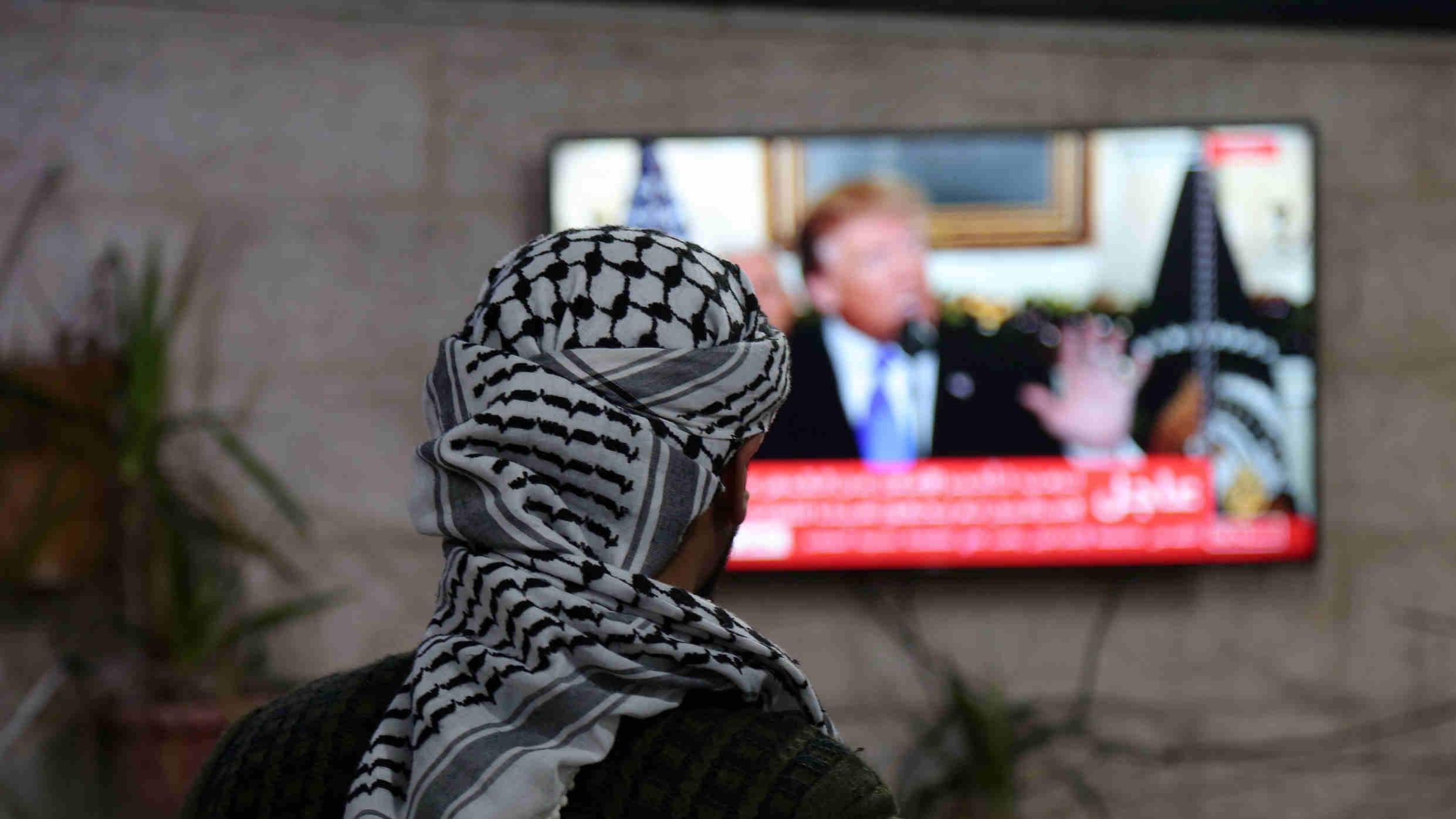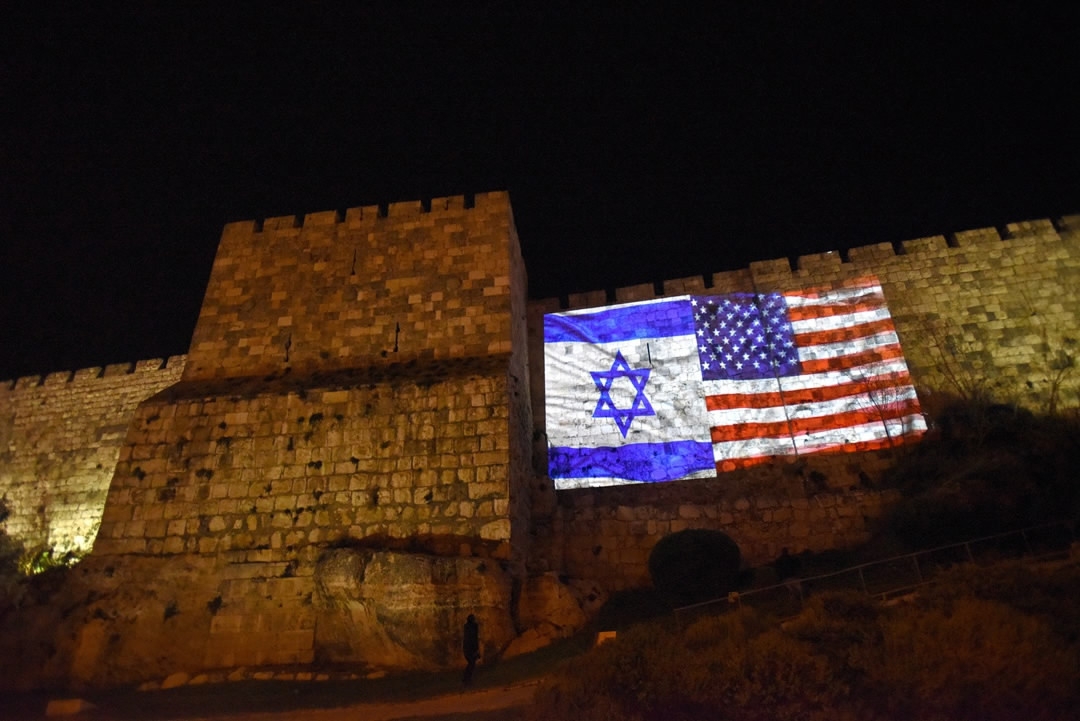
Business
19:57, 07-Dec-2017
US may lose role as arbiter in Israel-Palestine peace process
By CGTN’s Gao Songya

US President Donald Trump has formally recognized Jerusalem as the capital of Israel. The change reverses nearly seven decades of American policy towards the holy city, as Jerusalem has been claimed by both Israelis and Palestinians since the mid-20th century.
Following the US announcement, Palestinian President Mahmoud Abbas responded that the decision could trigger religious war by the extremists, harm regional peace and might engage the region into a never-ending war.
Though Trump claimed the move won’t cause any further boundary issues for Israel and Palestine, voices from the Palestinian leadership seem to agree that it will significantly lower the possibility of a peaceful two-state solution between the two parties.

Palestinians protest against US President Donald Trumps’ recognition of Jerusalem as Israel's capital, in Gaza City, Gaza, December 7, 2017. The US State Department has issued a travel warning for the West Bank and Jerusalem's Old City. /VCG Photo
Palestinians protest against US President Donald Trumps’ recognition of Jerusalem as Israel's capital, in Gaza City, Gaza, December 7, 2017. The US State Department has issued a travel warning for the West Bank and Jerusalem's Old City. /VCG Photo
Palestine Liberation Organization Secretary-General Saeb Erekat told CNN that Trump made “the biggest mistake of his life”, for which the US can no longer play a role in the peace process.
On the other hand, Israeli Prime Minister Benjamin Netanyahu praised Trump’s move and said the move is an “important step towards peace.”

The American flag and the Israeli national flag are projected side by side on the wall of Jerusalem's Old City by the Jerusalem Municipality, December 6, 2017, in celebration of the US’s recognition of Jerusalem as the capital of Israel. /VCG Photo
The American flag and the Israeli national flag are projected side by side on the wall of Jerusalem's Old City by the Jerusalem Municipality, December 6, 2017, in celebration of the US’s recognition of Jerusalem as the capital of Israel. /VCG Photo
However, international society in general is rather negative about the change of long-time policy by the US. Germany, France, the UK and many other countries all claimed to not support it, and the neighboring Saudi Arabia, also a traditional American ally, called the action “unjustified and irresponsible”.
On the economic front, gold futures edged up on Wednesday from a four-month low after Trump's move. Geopolitical concerns led to safe haven sentiments.
The western and eastern parts of Jerusalem are now respectively controlled by Israel and Palestine, and no country has an embassy in the city, after Salvador and Costa Rica became the last two countries to move out in 2006.
(Nawied Jabarkhyl and Xia Cheng also contributed to the story.)

SITEMAP
Copyright © 2018 CGTN. Beijing ICP prepared NO.16065310-3
Copyright © 2018 CGTN. Beijing ICP prepared NO.16065310-3